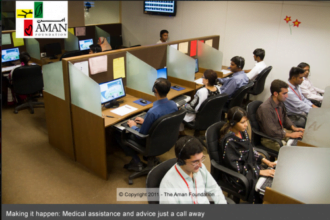This is a joint post with Denizhan Duran.
This is a joint post with Denizhan Duran.
In 2009, Michelle Adato and a co-author pointed out that cash transfers could add value to the HIV response, by reaching the poorest households relatively quickly. Now, a new generation of cash transfer programs in sub-Saharan Africa is reducing new infections and HIV-related risky behavior—and documenting the gains—while also providing consumption, nutrition, education, and mental health benefits to the orphans and vulnerable children who are the primary targets of some programs.
The first study to show an impact of cash transfers on risky sexual behavior comes from the now-discontinued Zomba program in Malawi, where Baird and co-authors found a 64% reduction in HIV risk as a result of a cash transfer that targets girls. The unconditional arm of the program was more successful in reducing pregnancy and marriage rates, whereas the conditional arm was more successful in increasing school enrolment. The study estimates a cost of $5,000 per HIV infection averted. Another study from another program in Malawi by Kohler and Thornton finds that the conditional arm reduced risky sex for women but not for men. In addition to having HIV-related impacts, the program decreased child labor and increased agricultural asset accumulation as well as participation in skilled labor.
Damien de Walque and co-authors evaluate the one-year-long RESPECT program in Tanzania, which pays $10 or $20 every four months if an individual tests negatively for various sexually transmitted infections. The study finds that after a year, there is a significant reduction in new infections for the group that got $20, but not $10. An early draft of a follow-up study presented at the IAEN Conference found that two years after the inception of the program, the effects were sustained for men but not for women.
The Malawi and Tanzania programs were small, short-lived, and NGO-run. The first evidence of whether a large-scale national cash transfer program can reduce HIV-related risky behavior among young people comes from the government-run Kenya Cash Transfer for Orphans and Vulnerable Children (CT-OVC) program. The program provides an unconditional $20 monthly transfer targeting 135,000 ultra-poor households and 360,000 orphans. In results from a cluster randomized longitudinal design study presented at the recent IAS meeting, Ashu Handa and co-authors find a 30% reduction in sexual debut among program beneficiaries between 15 and 20 years old (who were between 11 and 16 years old at baseline). The evaluation also found fewer occurrences of unprotected sex and fewer sexual partners for women. In addition to all these effects, the program increased secondary school enrollment to a level comparable to conditional cash transfer programs from around the world (by 8%). Similar large-scale national “unconditional” or “social” transfer programs exist in Malawi, Mozambique, South Africa, Zambia, and Zimbabwe.
Are cash transfers cost-effective? It depends on your objective. STRIVE, a consortium that investigates the structural drivers of the HIV/AIDS epidemic, evaluates the Malawi program, finding that in terms of the cost per HIV infection averted, the program is not cost-effective, as its price tag of $5,000 is significantly above $181 for male circumcision, or $1,315 for voluntary counseling and testing. However, if additional benefits generated by the program are taken into account, the price tag falls to $996 per HIV DALY averted, which makes it a better investment.
Both the Global Fund and PEPFAR spend considerable amounts on prevention, health systems strengthening, and orphans and vulnerable children: the Global Fund, from 2002-2011, has spent 29% of its funding on prevention and 3% on orphans and vulnerable children. Similarly, PEPFAR, last year, spent 29% of its overall funding on prevention and 8% on orphans and vulnerable children. So far, neither agency has provided significant funding to cash transfer programs, even while allocating funds to interventions that have been shown to be ineffective or for which there is no rigorous evaluation evidence.
With the new batch of evaluation results on cash transfers, there may be more reasons to invest in these kinds of programs, particularly the at-scale national programs targeted to the poor.
Note: A recent special issue of the Journal of Development Effectiveness reports on other effects of cash transfer programs in sub-Saharan Africa.








